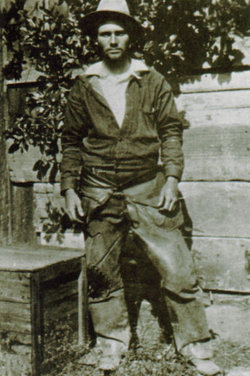“The Vegetarian’s Nightmare” a cowboy poem by Baxter Black
parsley power ladies and diner and make
you a shameful degrading confession a
deed of disgrace in the name of good
taste though I did it I meant no
aggression I had planted a garden last
April and lovingly sang it to Ballad but
later in June beneath the full moon
forgive me I wanted to salad so I I
slipped out and fondled a carrot
caressing its feather at all but the
first of a brute died power out the root
and the competent came with a pup and
laying my hand on a radish a jerk and it
left a small crater then with the blade
of my true value spade I exhumed a
slumbering Taylor
seller had pucked I twisted the squash
tomatoes were wincing in fear I choked
the romaine screamed out in pain their
anguish was filling my ears I finally
came to the latest as it cringed at the
top of the road with one wicked slice
there beheaded to twice as it rise I
dealt a death blow i butchered the
onions and parsley so my whole was all
covered with gore I chopped and I walked
without looking back then I stealthily
slipped in the door my bounty lay naked
dying so I drowned them to snuff out
their life I sliced and I peeled as they
thrashed and they reeled on the cutting
board under my knife I violated Tomatoes
so their innards could never survive I
grated and grounded they made not a
sound then I thought of the Tator alive
and then I took the small broken pieces
and tortured and killed with my hands
and touched them together heedless of
whether they suffered or made their
demands I ate them forgive me I’m sorry
but hear me no I’m a beginner of those
plants feel pain so it’s hard to explain
to someone who eats them for dinner and
tend to begin a crusade for plants
rights including chickpeas and the ACLU
will be helping me too in the meantime
please pass the blue cheese
Transcribed from “A Vegetarian’s Nightmare” by OddballVQ on YouTube.
Watch “The Vegetarian’s Nightmare” performed by the cowboy poet Baxter Black on YouTube.
About the poet Baxter Black
A Cowboy’s Darkly Hilarious Ode to Salad Suffering
In A Vegetarian’s Nightmare, legendary cowboy poet Baxter Black delivers a gut-busting, rhyme-heavy monologue that flips the ethical script on vegetarianism. This satirical performance poem opens as a self-confession, revealing the narrator’s horrifying crimes—against vegetables. What follows is a mock-epic of culinary violence, complete with carrots “fondled,” radishes “jerked,” lettuce that “screamed out in pain,” and romaine “beheaded” under moonlight.
With classic cowboy flair, Black uses elevated poetic diction mixed with gritty humor to describe the emotional and physical trauma inflicted upon his unsuspecting garden. His knife is no kitchen utensil—it’s a weapon of mass destruction. Through personification, vivid imagery, and his signature Western cadence, he paints the harvest as a battlefield. Tomatoes are violated, onions butchered, and potatoes tortured until they meet their end—only to be drowned in blue cheese.
Satire with a Sharp Edge
Black’s poem works brilliantly as a parody, skewering the moral high ground often claimed by vegetarians. Rather than arguing logically, he humorously leans into absurdity: if plants can feel pain, then aren’t vegetarians just as guilty of violence as meat eaters?
The poem plays with the reader’s expectations, starting off sounding like a sincere ethical admission, but quickly descending into over-the-top (yet skillfully rhymed) carnage. Black’s message isn’t to launch an actual crusade for “plant rights,” but rather to poke fun at the hypocrisy or blind spots in moral dietary choices. It’s an exaggerated cowboy logic: if you’re going to kill to eat, might as well own it.
Performance Roots and Cowboy Poetics
Like many of Baxter Black’s works, A Vegetarian’s Nightmare is best experienced aloud. The poem thrives on rhythm, timing, and dramatic delivery—a natural fit for Black’s background in performance poetry and radio. His voice—equal parts campfire storyteller and satirical commentator—makes the gruesome humor land with levity, not malice.
It also exemplifies a classic hallmark of cowboy poetry: transforming everyday ranching life (or in this case, eating salad) into a mythic, moral, and often hilarious tale. Black’s poem, while playful, also asks us to reconsider our assumptions with a wink and a laugh.
Discover More About Cowboy Poet Baxter Black
“A Vegetarian’s Nightmare” is just one example of Baxter Black’s unforgettable ability to mix wit, Western wisdom, and poetic technique. To learn more about the life, legacy, and literary contributions of this iconic Arizona cowboy poet, visit his full biography on AZpoetry.com.



